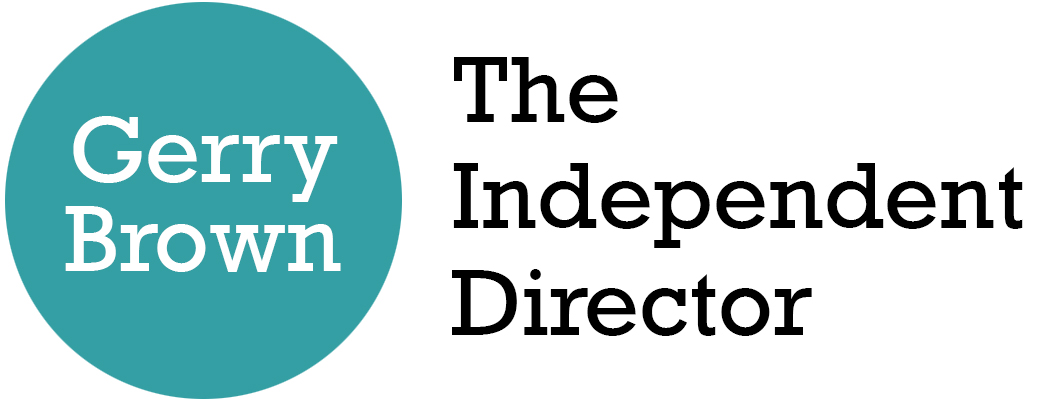
Book Launch: The Independent Director in Society Questions and Answers
Questions arising from the book launch of The Independent Director in Society.
If you would like a fuller reply please let us know
- Have any of the directors/members any connection or influence with institutions like the FCA, FSCS, SFO? I am referring to all the Scams that go on in the Financial Sector in the city and how to stop them and act accordingly. I am referring to PONZI schemes like the London Capital & Finance scam that the FCA allowed to happen for years before they stopped and closed the firm on January 2010.
There have been many scandals in the Financial Services sector especially recently with fines totalling $320bn. The Independent Directors of the firms in the sector bear a very important responsibility for much of this.
- Is part of the problem in university governance highlighted by Vice-Chancellors also wanting to be called Chief Executive Officers? In today's speak is this not a power grab by Vice-Chancellors to enhance their status? Is it not an attempt to justify very high levels and increasing levels of compensation for VCs when the vast majority of staff in university have not seen any real increases in pay in over 10 years?
The pay and conditions of Vice Chancellors should be determined by the Remuneration Committee which should be made up entirely of Independent Council Members .The Vice Chancellor should NOT be a member of this group.
- How can I get/buy a copy of the book ?
The book can be purchased from the publisher, Palgrave Macmillan, from reputable booksellers and from Amazon
- Prof Kakabadse referred to management push back. Being a NED is a two way street. Does your book look at how management can best make use of their NED's to the benefit of the organisation?
This is an important point and the book explains very clearly to executive teams what they should expect from their Independent Board Members in order to get the most from them
- You mention in the book that diversity of boards needs improving, and that independent directors should be bringing their networks and connections. Do you see an inherent tension here and how would you recommend institutions overcome it?
The way to overcome this is to have a very effective Nomination Committee which is composed entirely of Independent Board members
- Does regulation need to do more to promote independence on boards?
Most codes of conduct are very clear about the need for Independent Directors .However they do not really deal with the effectiveness issue .This is why we focus on this in the book in explaining for example via case studies what it really means to behave as an Independent Director and the difference to an organisation this can make.
- Should all public companies and private companies of a certain size be subject to legislation to appoint NEDs?
Public companies have to appoint a majority of their boards as Independent Directors .There is a strong argument for private companies ( including Private Equity ) to be required above a certain size to have some Independence Directors on their boards
- How suitable is this book for offering advice to first-time directors?
For first time Directors in The NHS,Universities ,Charities and Sport sectors this book provides a great deal of useful background information.
- How can you train independent directors to recognise the limits of managerial discretion and its appropriate use?
The balance between the roles and responsibilities of executive directors and those of Independent Directors is complex as you suggest . The book seeks to address this issue partially by the use of case studies .There are a few practically based directors programmes such as those run by Henley Business School which specifically address this issue .”
- What should the 3 key priorities of a board's be in dealing with the ongoing pandemic situation?
Preparing a survival strategy
Cash management to ensure that the organisation can satisfy ‘going concern ‘ requirements
Ensuring that the team are properly organised and motivated to deal with the unique challenges
Paying attention to the demands of all stakeholders
- How do we ensure that independent directors don't become part of the group think because they like the income it generates and don't want to 'rock the boat'?
By selecting individuals who are independently minded and prepared to stand up and be counted.By choosing a chair who really wants to have transparent and open board discussion BEFORE decisions are taken
- How much time should board directors devote to Horizon Planning?
There are 3 aspects to horizon planning
Horizon 1 Maintain and defend core business
Horizon 2 Nurture emerging business
Horizon 3 Create genuinely new business
The results of our research shows that the vast majority of boards across all sectors spend most of their time on Horizon 1 eg the NHS
One aspect of the crisis in governance is that boards need to spend more time on Horizon planning 2 and 3 in order to survive in the longer term
- What are the additional benefits that come from paying independent directors over and above improving recruitment?
It will really help in increasing board diversity.It will encourage people from diverse backgrounds, the young ,the disabled those from socially disadvantaged backgrounds to come forward.By increasing and broadening the talent pool it will help to improve board effectiveness which is so badly needed in all sectors given the crisis in governance and the very demanding challenges
- Who do you think should hold the independent directors to account?
With companies it is the shareholders .
With all organisations the regulators have a role to play in ‘calling out ‘ those that are failing and by association the boards and directors involved eg The Care Quality Commission for healthcare
- Surely the biggest difference between stakeholders in the corporate sector, e.g. mainly the shareholders, compared with the vast range of stakeholders in public bodies and charities where virtually everyone has an interest in what the governing body is doing. For example, students, service users, staff, patients, donors, beneficiaries, plus regulators etc ?
Increasingly board directors of companies are recognising their responsibilities to a wider range of stakeholders eg staff, customers, the community.So the differences in this respect are becoming less
- If diversity is such an important issue raised by this research, why the all male panel for today?
This is a very good point.In Gerry Browns next book launch for ‘Making a Difference ‘ the panel will reflect diversity which is one of the main themes of the book .This book will be published in December .
- How would you respond to the argument that since the role of the non-executive independent director was formalised - in the 1990s, I think - corporate behaviour appears to have become worse (in terms of scandals, fraud, bad behaviour, excessive executive pay etc?
There is no doubt that the number and type of scandals across society has increased .In the book we argue that there are plenty of codes from regulatory authorities but what is needed is to improve the behaviour of Independent Directors eg by more diversity ,better selection, training and payment where none exists .
- You have highlighted the need for greater understanding of the role of the board and the independent director. But is that lack of knowledge equally spread (directors, managers, public), and how much awareness is there? Do directors know when they do not understand their role? Who tells them?
This need for education right across society is a vitally important point .There are a few Management programmes at some of the best Business Schools which teach about the role of Independent Directors and the Financial Times has a specific programme .But that’s it, which is one of the reasons for this book .
- The parties in most need of ""enlightenment"" when it comes to the importance of the BoD are the shareholders (stakeholders), who often have a short-term, profit and/or power oriented, selfish scope. They may be the biggest barrier to an effective BoD? How would you address this barrier?
Increasingly Fund Managers such as Blackrock and Fidelity are leading a change within the investment world with much more focus on responsibility to a wider range of stakeholders.
All of us have a voice to use in this endeavour.Education has a vital role to play and hopefully the book will contribute to this.
- Do you think these sectors are clear on their purpose?
The challenges facing each sector are many and various .The effectiveness of boards in dealing with these challenges is very seriously impacted by the crisis in governance which the book highlights
- How does the governance system in the UK compare with systems in Europe and the USA?
For quoted companies there are similar codes of practice in Europe to the UK .The USA regulations became tighter with the passing of the Dodd- Frank legislation and the law is used more than in the UK to enforce the governance of companies eg fines and jail sentences
- What are the underlying elements needed to create a culture that incorporates better selection, training and education of the executive in organisations?
This should be one of the priorities for boards and the chair has a particular responsibility for this to be achieved
- What particular stories about the importance of diversity of thought and diversity of background or indeed lack of it stand out in your research?
In all of the sectors surveyed there was a very strong finding and requirement for greater diversity if board effectiveness was to be improved.
- What are the most important attributes that qualify a person to sit on a board ?How important is character ?
Personal attributes include integrity ,leadership, communication skills, interpersonal sensitivity, listening skills, intelligence, cultural flexibility, sense of responsibility, independence. Then there are professional and managerial requirements depending on the board .
- What steps can an organisation take to get younger people to be lay members of boards?
This is an important issue if greater diversity is to be achieved .Promoting a greater awareness among young people of the role and challenges of boards and how they could make a difference by joining one would be a good first step.
Persuading employers to allow young employees to have time off to join boards eg of sport or charities would be a second step.
- How much responsibility should trustees /board members have for organisational culture and environmental issues and how can they ensure that this is as healthy as the bottom line?
The board has a clear responsibility for assessing the culture within the organisation, for monitoring it and for making changes .This includes the approach to environmental matters .It has to balance the demands from all stakeholders including the shareholders.
- How can public boards be better prepared for uncertainty?
The research underpinning the book showed that this a very real issue for boards .The chair needs to lead the board in focussing more of its attention on scenario planning ,analysing the various areas of uncertainty, then prioritising plans to deal with these.
- What is the role of Independent Directors in facing risk management challenges?
The Independent Directors have a particular responsibility as the long term custodians of organisations to be really involved in identifying the major risks and ensuring that a plan has been prepared by the executive team to deal with these. Unfortunately in the case of Covid 19 with some rare examples this was not even on the risk register.
